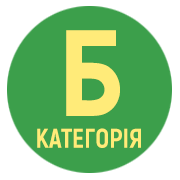THE INFLUENCE OF CHESS AND THE GAME OF GO ON EDUCATION, SCIENCE, AND BUSINESS GEOGRAPHY
Abstract
The essence of the concepts of playing chess and go (game), science and business and their relationship and current state are revealed. Common and distinctive features of two intellectual games, their impact on business psychology are considered. European (and American) individualism is driven by a chess-like mindset in which the capabilities and strength of the pieces are markedly different. Asian collectivism, driven by a mindset based on the game of go, where all stones have equal value and their interaction is crucial. This is manifested both in business and in education. For European and American companies, the most important thing is to recruit qualified personnel, for Asian companies – to improve business processes. Europeans and Americans choose their own profession, but the Vietnamese did not choose it. The state needed qualified personnel of relevant specialties, so they were sent to study. There is nothing terrible in this for people brought up on the principles of the game of go. Normative narratives and the current situation in science and business are also characterized in the work. The contribution of domestic and foreign scientists to the definition of these concepts was studied. Scientific approaches and scientific-methodical bases of studying intellectual potential are summarized. The peculiarities of provision of basic funds are considered. The problems of rational use of scientific and production potential and ways to overcome them have been identified. Ways to increase the scientific and production potential are proposed, and ways of further research of these concepts are outlined. The European thinking, formed by the principles of chess, and the Asian one, formed by the principles of the game of go, are compared. Recommendations for business and education are given using the principles of these intellectual games. Since Ukrainians are Europeans, chess thinking is more characteristic of them. From this follows individualism, active entrepreneurship, tough, aggressive competition. It is important for a Ukrainian to love what he does. Therefore, in education, it is necessary to get rid of the remnants of the soviet period, and to prepare pupils and students for an active independent life, that is, to teach them to rely on themselves, and not on the state. Nevertheless, at all educational levels, it is advisable to implement the principle of go (game), namely the choice between territory and influence, that is, between a smaller but guaranteed one and a larger but risky one.
References
2. Закон України «Про освіту» зі змінами 2023 рік. № 2145-VIII від 05.09.2017 р. 268 с. Офіційний вебсайт. URL: https://ips.ligazakon.net/document/T172145?an=1 (дата звернення: 25.02.2023).
3. Потапова А.Г. Бізнес-планування: курс лекцій. Луцьк : ПП Іванюк В.П., 2016. 116 с.
4. Kasparov G. How Life Imitates Chess: Making the Right Moves, from the Board to the Boardroom. New York : Arrow books, 2007. 275 p.
5. Nihon Kiin. Go, The World’s Most Fascinating Game. Tokyo : Ishi Press, 2003. 189 p.
6. Which countries have the most GMs per capita? Chess Stack Exchange. URL: https://chess.stackexchange.com/questions/34893/which-countries-have-the-most-gms-per-capita (дата звернення: 04.09.2023).
7. Yasuyuki Mima. Go: an Asian Paradigm for Business Strategy. Tokyo, San Francisco, Amsterdam. Ishi Press, Inc. 1995. 267 р.






